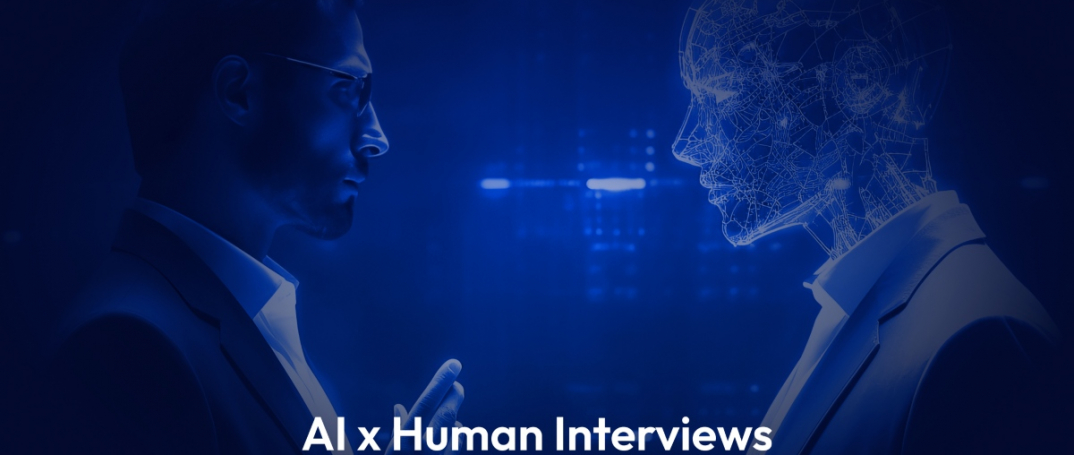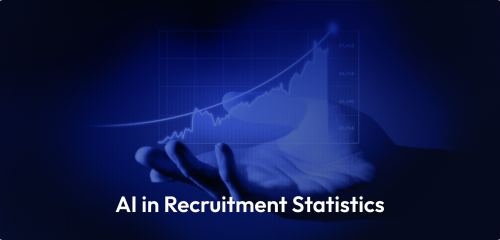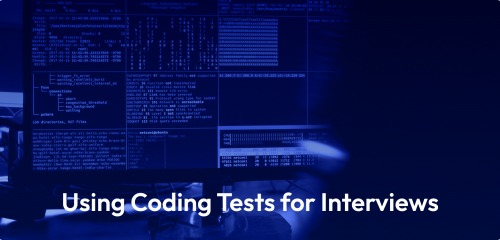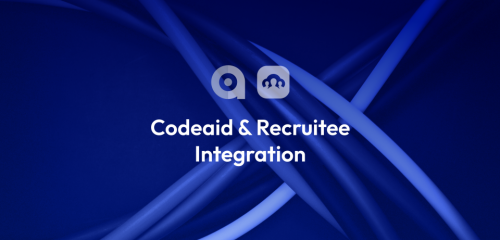AI interviewing for technical hires is now a reality. According to Statista, HR tech’s annual revenue was projected to reach 62.6 billion U.S. dollars in 2022, with a forecast indicating a growth to 91.8 billion U.S. dollars by 2026. This gives HR and hiring managers options but also added complexity when deciding what the hiring pipeline should now look like. Does AI interviewing replace or compliment traditional manual interviews? This is what we discuss in this article.
AI interviewing for technical hires is now a reality. According to Statista, HR tech’s annual revenue was projected to reach 62.6 billion U.S. dollars in 2022, with a forecast indicating a growth to 91.8 billion U.S. dollars by 2026. This gives HR and hiring managers options but also added complexity when deciding what the hiring pipeline should now look like. Does AI interviewing replace or compliment traditional manual interviews? This is what we discuss in this article.
Since AI interviewing is so new companies are encountering it for the first time. It may be some time before many companies adopt it or feel comfortable enough to replace traditional interviews. There will be the early adopters. Many of these will be AI companies themselves. Some of the early adopters will be companies that have no choice but to use AI as currently they don’t have the skills in house to make the technical hires they need.
One of the advantages of an AI interviewer is that it is well-versed in all software technologies. You want to hire a C++, embedded software engineer but have no engineers to interview on that subject? No problem, the AI interviewer can help. However, most companies will not replace traditional interviews with AI interviews, at least not at first.
When to Rely on AI Interviews: Understanding the Decision-Making Factors
When to use AI interviewing, when to use manual interviewing or when to use both depends on many factors. As mentioned above the most obvious case where AI interviewing will be used is when a company does not have the skills. This often happens when a company is moving into a new technical area or when the only resource that possessed certain skills has left. This is a perfect fit for AI interviewing.
A related situation is when a job opening requires multiple skills, but your interviewers don’t have full coverage of those skills. In this case the AI can just check out the skills the company lacks in a complimentary interview.
Other factors that can come into play are seniority, location, coding assessment tests, criticality of the position and HR policy. Let’s take each in turn.
Seniority
It may be the case that senior engineers, especially in certain locations, may not warm up to being interviewed by an AI. A senior engineer in Silicon Valley might feel they have deserved direct engagement with company personnel. Most senior candidates in the North America and Europe will also want to judge the capabilities of the company itself and to do that direct engagement is necessary.
Junior engineers will not have any problem interacting with an AI. They are motivated and do not have the experience and sophistication yet to try to interview the company. Intermediate-level engineers are somewhere in the middle. As AI improves it will get to a point that even seniors are fine with interviewing by AI as long as they get to engage with company personnel at some point.
Location
Location also factors in. If your company is hiring remotely in more developing countries, then seniority plays less of a role and all seniorities are likely to be fine engaging with an AI. If the candidate can be located many time zones away the AI interviews are more convenient as scheduling is so much easier. The AI is always available.
AI also knows all spoken languages. So, while the vast majority of technical interviews are done in English if you want some part or all of the interview done in the candidate’s native language then AI is the way to go.
Available skills
Assessment tests, especially coding tests, are widely used in the hiring process. These tests factor in here because each company must decide how much automation they want in their hiring pipeline. If candidates take a coding test and then an AI interview, then that is a considerable amount of non-human engagement. If you set up your pipeline this way it might be best to get feedback from candidates later to see how they felt about it and then possibly adjust.
One adjustment you can make is to have an in-house engineer evaluate the results manually and email these thoughts to the candidate or have a short video chat to go over them. It would not be a full interview but would add some personal touch and let them know that there is a human in the loop somewhere.
Role Significance and HR Policy
The last two factors, criticality of the position and HR policy, are related. If the position is key, relying totally on automation to make the technical assessment might not be enough. AI is not perfect, and it also can be the case that the candidate used AI during the testing or AI interviewing that went undetected.
For critical hires it is best to also do a proctored, manual evaluation. It is also likely that some companies have, or will have, an HR policy that requires a human technically interview the candidate at some point during the process.
The Use of AI and Human Interviews Together
Now there are combinations of AI and human interviewing that can be employed. Codeaid, a leader in the AI recruiting tools space, allows manual reviews of AI interviews. If the recruiter or hiring manager feels the AI may have over or under appreciated a candidate’s answers, they can get a second opinion from an in-house engineer.
There is also the possibility, although this does not currently exist, that an AI can render second opinions of manual interviews. This could be triggered automatically so that it is always available. It would mean the manual interviews would need to be recorded so the AI can access.
AI Interviews are a brand-new tool and how they fit into the modern hiring process for technical hires will be a trial-and-error process. AI in the hiring process is clearly here and will not go away. All companies need to figure out how to use these AI recruiting tools to hire with the volume, efficiency and accuracy that they need in this increasingly competitive and fast-paced technical world.



